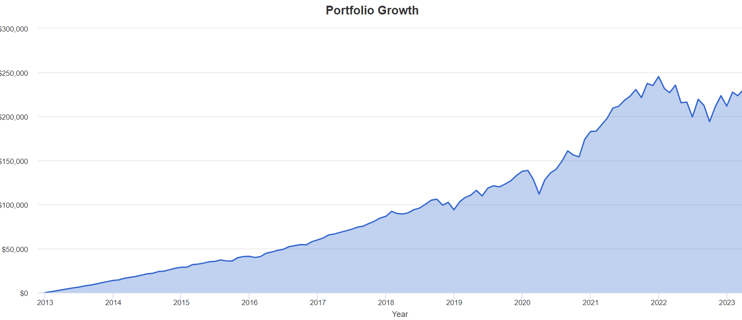How I saved more than my boss at age 23 - A true story
8 years ago, I lived in a 12sq meter room within a 4-bed flat share in Dublin. I was paying €800 on rent, earning €2,100 and working 37.5 hours a week.
RELATIONSHIPS
Anthony Walsh
1/1/20254 min read
8 years ago, I lived in a 12sq meter room within a 4-bed flat share in Dublin. I was paying €800 on rent, earning €2,100 and working 37.5 hours a week.
I worked at a fund management company in Ireland and was the youngest and newest member of my team. As this was my first real full-time job, I studied my banking colleagues for clues in how to get rich. I expected Wolf of Wall Street type of stuff.
But I didn’t understand anything they told me:
“I went long on the S&P 500 last night.”
“Wow, look at how crazy the VIX is going today.”
“These central banks are killing us!”
So much jargon. I didn’t understand any of it but I was ecstatic: For the first time in my life, I broke into that investment circle. It felt good.
Eager to catch up to them, and finally make some passive income, I started reading up on money tips.
I soon discovered I could save money on banking fees. I was paying €5 per month for my debit card, and Bank of Ireland just ran an ad saying banking fees are free if you domicile €3,000 over there.
With a little overtime, I managed to save €1,000 per month. I reached this threshold, I was eligible.
“Sweet!”- I told myself. “Free money.”
The next morning, as I was performing my usual work duties, I left the comfort of my excel sheet and ventured to the Bloomberg terminal to get a precise valuation (I worked in derivatives pricing). The Bloomberg terminal was right next to my colleague, a few years older, and two promotions above me.
I reckoned the Bank of Ireland advertisement would be a great way to start small talk and soak up his money views.
“Are you going to do it?” I asked. “Are you going to switch to Bank of Ireland? We can save money.”
“Ah, that’s not for me” he responded.
“Why not? It’s a great deal” I insisted.
“I don’t have that kind of money” he closed with.
My mind went blank.
How could this be? This guy lives rent-free with his parents, drives his mom’s car, has a couple of years of experience, and is two salary bands above me. If I’m saving €1,000, he must be saving so much more.
Turns out he spent a lot more on beer and nights-out than on his savings accout. He earned a good salary, lived rent-free, but still didn’t manage to save.
He wasn’t alone. I met managers who didn’t know the first thing about budgeting. Traders who didn’t have any savings. And bankers who didn’t know to invest.
I soon discovered something: all this investment talk is a facade.
Sure they had a brokerage account. They traded a few stocks, even a few complex derivatives here and there.
But that was it.
No automated savings, no monthly investments, and no financial plan of any kind.
They played around with a few hundred dollars that they would trade in and out of stocks on a whim, hoping to make a tiny bit of gain there.
That’s when it dawned on me: Are they buying stocks because they genuinely believe it’s better for their financial future? Or because “that’s just what you do when you work in this field”?
Be careful of appearances.
Turns out that I was saving than my own boss, yet he wore the fancier suit.
Appearances can be deceiving, especially with money. As Warren Buffett famously said: “Only when the tide goes out do you discover who’s been swimming naked.”
Now, I know what you're thinking:
"But Anthony, you're too obsessed with money! You shouldn't save so much, you must have had a boring lifestyle. I'd like to enjoy my life."
Why do we assume that spending less decreases quality of life? I had an awesome time. I was 23, finally landed a job at a fortune-500 company, lived 8 minutes away from my office, just bought myself the latest Xbox and Star Wars game, hiked frequently, enjoyed cheap Ryanair flights all over Europe, and was having a blast on Irish Tinder.
In my mind, I was on top of the world; I was reaching all my goals. My lifestyle got a significant upgrade from my student days. The way I see it: I had already significantly upgraded my lifestyle over a couple of months so why would I need to upgrade it further?
At that time, I knew I already had "enough".
Sure, spending on brunch, night-outs, or designer clothes is appealing, but growing my savings ranked much higher on my list of priorities.
Because here's the truth:
Don’t be duped by people driving luxury cars, living in flashy buildings, or sporting a designer outfit; you don’t know how much they have on their bank account. Chances are, they’re not saving much.
Here's the only thing these luxury items are telling you: They spent a lot of money on that item.
That's it.
You don't know how rich they are, all you know is they spent a large amount of money.
But guess what? If they're spending it, they're not saving it.
Someone with a $20,000 watch is proof that their savings account is $20,000 lower than it could be. That's the only thing that you can know.
Wealth is what you don’t see.
At age 23, I was saving €1,000 per month. That was about 43% of my income. And yes, €1,000 isn't going to change my life.
But guess what?
€1,000 saved each month for a decade is €120,000. If I invested 100% of this money in the US stock market each month, it would be worth about €230,000 by now.
Source: Portfolio Visualizer (an awesome website, check it out!)
If you can't move the mountain, take a pebble each time you visit. Someone who saved the same amount and invested in the a standard S&P 500 index fund from 1993 to 2023, would now have a portfolio worth 2.3 million.
You don't need to earn a crazy salary to become a millionaire. You just need to save money and invest it, month after month.
It's a slow and boring process, but it works. Focusing on growth, year after year, is going to aggregate into incredible wealth.
Because building wealth isn’t a sprint, it’s a marathon.


"Your decisions offer the only way to purposefully influence anything in your life"
Ready to get started?


